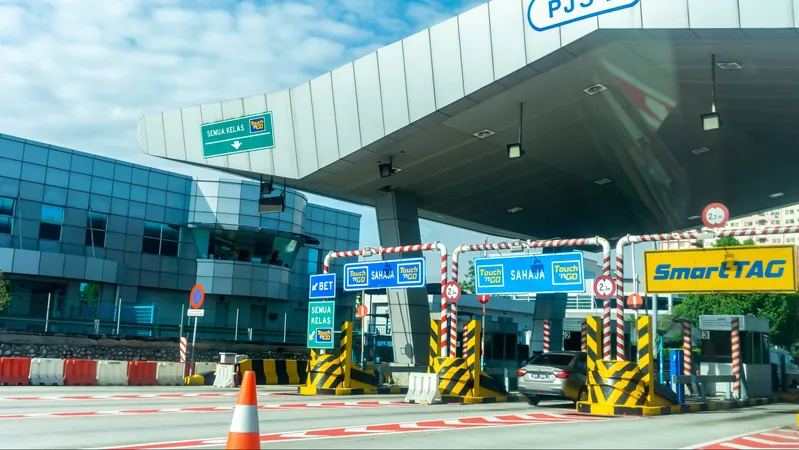
Will Malaysia's Festival Spirit Survive the End of Toll-Free Travel?
2025-01-25
Author: Rajesh
In a controversial turn of events, the Malaysian government has announced the discontinuation of toll-free travel during festive periods, a move that has left many citizens feeling both saddened and financially strained. For years, these toll exemptions during Christmas and New Year celebrations were designed to make holiday journeys more affordable, allowing families to partake in the beloved tradition of balik kampung—returning home to celebrate with loved ones.
The toll-free initiative became a hallmark of Malaysian celebrations, enabling millions to save money while strengthening community ties during peak festive travel times. However, the government has recently cited financial constraints as the reason for this significant policy shift, which is set to impact the way families celebrate moving forward.
The Reason Behind the Change
With the increasing costs of compensating highway operators for waived toll fees—amounting to millions of ringgit during peak seasons—the government was compelled to take action. Officials argued that blanket toll exemptions were not an efficient use of public funds, benefiting all road users equally, regardless of their financial situation. In response to these challenges, the government aims to redirect aid towards more targeted groups, prioritizing those in greater need and optimizing the use of taxpayer money.
Despite the rationale, public reaction has been polarizing. On platforms like Reddit, opinions vary widely, with many voicing strong feelings about the loss of this festive tradition. One user expressed frustration at the potential for special exemptions, stating, "If you want to remove the benefit, then ensure it’s fair for everyone." Others were more supportive of the change, viewing it as a necessary step in managing taxpayers' money more responsibly.
Cultural and Financial Implications
The discontinuation of toll-free travel poses a dual challenge: it threatens longstanding cultural practices while placing an additional financial burden on families who look forward to returning home during the holidays. Critics warn that this move may alienate citizens and disrupt the cultural fabric that makes Malaysian festivals unique.
Moreover, the government must contend with increasing traffic congestion and environmental concerns that often accompany holiday travel. The absence of toll exemptions could help alleviate some of the severe traffic delays and reduce carbon emissions during peak travel times. However, this raises further questions about the future of public transport options and whether they will be improved to accommodate increased passenger demand during festive seasons.
Looking Forward
As Malaysia navigates this complex landscape, policymakers will be tasked with finding innovative solutions that respect cultural practices while addressing financial realities. Proposed initiatives might include enhancing public transportation options for lower-income families or implementing special assistance programs aimed at preserving important holiday traditions.
Ultimately, the Malaysian public is watching closely, hoping that the government will strike the right balance between fiscal responsibility and the cherished customs that define their national identity. The success of these efforts will not just be measured in financial terms, but in the ability to maintain the spirit of unity and joy that pervades festive celebrations across the nation.
Will Malaysia's vibrant culture thrive despite these changes? Only time—and the government’s forthcoming actions—will tell.




 Brasil (PT)
Brasil (PT)
 Canada (EN)
Canada (EN)
 Chile (ES)
Chile (ES)
 Česko (CS)
Česko (CS)
 대한민국 (KO)
대한민국 (KO)
 España (ES)
España (ES)
 France (FR)
France (FR)
 Hong Kong (EN)
Hong Kong (EN)
 Italia (IT)
Italia (IT)
 日本 (JA)
日本 (JA)
 Magyarország (HU)
Magyarország (HU)
 Norge (NO)
Norge (NO)
 Polska (PL)
Polska (PL)
 Schweiz (DE)
Schweiz (DE)
 Singapore (EN)
Singapore (EN)
 Sverige (SV)
Sverige (SV)
 Suomi (FI)
Suomi (FI)
 Türkiye (TR)
Türkiye (TR)